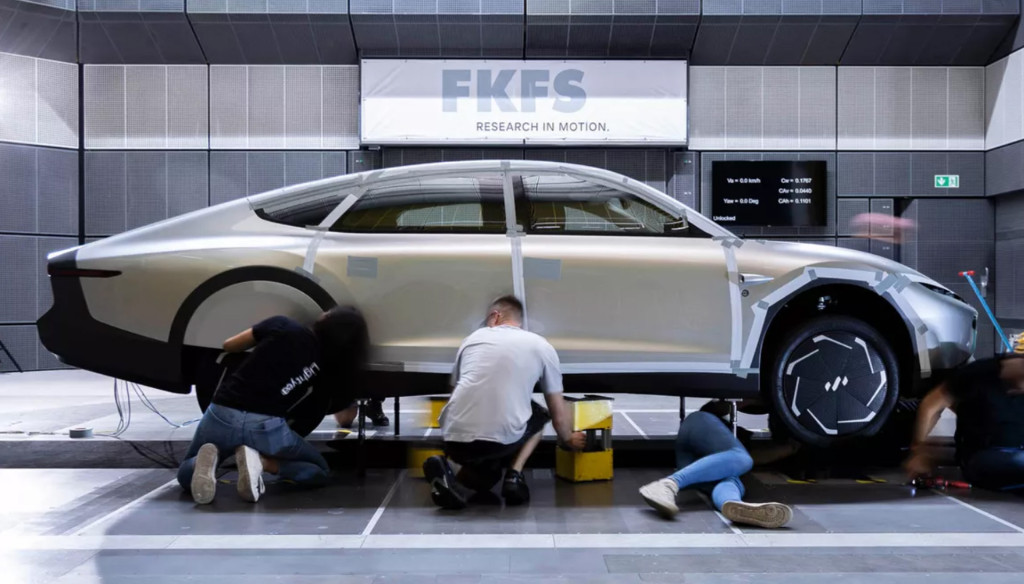- Quick Look at the 2020 Volkswagen Atlas Cross Sport | MotorTrend - March 13, 2024
- BMW Design – 2009 BMW Z4 – 2009 Detroit Auto Show - March 11, 2024
- Top 10 Car Features Women Love - October 7, 2023
Dutch electric vehicle startup Lightyear is edging closer to realizing production of its sleek 0 sedan, which is being developed to be as efficient as possible.
This efficiency mantra extends to the aerodynamics where Lightyear was able to achieve a drag coefficient of 0.175 Cd, a record low for a production-spec vehicle. The figure was verified by independent testing at a wind tunnel in Germany.
The next closest cars are the Mercedes-Benz EQS and Tesla Model S, both with a 0.20 Cd rating. Mercedes earlier this year also showed the Vision EQXX concept car with a claimed drag coefficient of 0.17.
A low drag coefficient is important for EVs as a lower figure means less energy is used to fight drag, resulting in more range. According to Lightyear, around 60% of the energy used by an EV at highway speeds is to overcome air resistance.
A low drag coefficient is also particularly crucial for the 0 whose roof-mounted solar panels, in the right conditions, can help the car continue coasting at highway speeds without the driver having to press the accelerator.
The 0 features a 60-kwh battery that Lightyear claims will deliver a range of 388 miles on the more generous WLTP test cycle used outside the U.S. This should still result in more than 300 miles on the stricter cycle used by the EPA.

Lightyear 0 wind-tunnel testing
Also aiding the efficiency are low-rolling resistance tires, as well as in-wheel motors designed with efficiency in mind. The car has a claimed efficiency rate of 10.5 kwh per 62 miles, which approaches the efficiency of the Vision EQXX concept that used 8.7 kwh per 62 miles during a recent real-world test.
Production of the Lightyear 0 will start this fall at a plant operated by Finland’s Valmet Automotive, which built the original Fisker Karma sedan and is also contracted to build the Sono Sion, another EV that can be charged by solar panels.
The first 150 examples, a special Pioneer Edition priced from 150,000 euros (approximately $149,785), are sold out. The next in the series is the Limited Edition that can be ordered now and starts at 250,000 euros ($249,660). Lightyear hasn’t said whether the 0 will be available in the U.S.
